Our Morning Offering – 29 March – Good Friday
Membra Jesu Nostri
O Sacred Head, Now Wounded
By Blessed Arnulf of Leuven O.Cist. (c1200-1276)
O sacred Head, now wounded,
with grief and shame weighed down,
Now scornfully surrounded
with thorns, Thine only crown;
O sacred Head, what glory,
what bliss till now was Thine!
Yet, though despised and gory,
I joy to call Thee mine.
What Thou, my Lord, hast suffered,
was all for sinners’ gain;
Mine, mine, was the transgression
but Thine the deadly pain.
Lo, here I fall, my Saviour!
’Tis I deserve Thy place;
Look on me with Thy favour,
vouchsafe to me Thy grace.
Men mock and taunt and jeer Thee,
Thou noble Countenance,
Though mighty worlds shall fear Thee
and flee before Thy glance.
How art thou pale with anguish,
with sore abuse and scorn!
How doth Thy Visage languish
that once was bright as morn!
Now from Thy cheeks has vanished,
their colour once so fair;
From Thy red lips is banished
the splendour that was there.
Grim death, with cruel rigour,
hath robbed Thee of Thy life;
Thus Thou hast lost Thy vigour,
Thy strength in this sad strife.
My burden in Thy Passion,
Lord, Thou hast borne for me,
For it was my transgression
which brought this woe on Thee.
I cast me down before Thee,
wrath were my rightful lot;
Have mercy, I implore Thee;
Redeemer, spurn me not!
What language shall I borrow
to thank Thee, dearest Friend,
For this Thy dying sorrow,
Thy pity without end?
O make me Thine forever
and should I fainting be,
Lord, let me never, never,
outlive my love to Thee.
My Shepherd, now receive me;
my Guardian, own me Thine.
Great blessings Thou didst give me,
O Source of gifts Divine.
Thy Lips have often fed me
with words of Truth and Love;
Thy Spirit oft hath led me
to Heavenly joys above.
Here I will stand beside Thee,
from Thee I will not part;
O Saviour, do not chide me!
When breaks Thy loving Heart,
When soul and body languish
in death’s cold, cruel grasp,
Then, in Thy deepest anguish,
Thee in mine arms I’ll clasp.
The joy can never be spoken,
above all joys beside,
When in Thy Body broken
I thus with safety hide.
O Lord of Life, desiring
Thy Glory now to see,
Beside Thy Cross expiring,
I’d breathe my soul to Thee.
My Saviour, be Thou near me
when death is at my door;
Then let Thy Presence cheer me,
forsake me nevermore!
When soul and body languish,
oh, leave me not alone
But take away mine anguish
by virtue of Thine own!
Be Thou my consolation,
my shield when I must die;
Remind me of Thy Passion
when my last hour draws nigh.
Mine eyes shall then behold Thee,
upon Thy Cross shall dwell,
My heart by faith enfolds Thee.
Who dieth thus dies well!
This Poem/Hymn was incorrectly ascribed to St Bernard of Clairvaux, for they are consistent with his style and his devotion. However, “the external proof for this ascription is so slight as to be negligible” (Hurlbut, VII, 18).
The “O Sacred Head, Now Wounded” did appear in St Bernard’s collected works but only two hundred years after his death. When the Monasteries were suppressed in the French Revolution, all of the relevant manuscripts disappeared. The only surviving manuscript, dated 1320, bears Arnulf’s name (Arnulfus de louan). Here is Blessed Arnulf’s story:
https://anastpaul.com/2023/04/02/saint-of-the-day-2-april-blessed-arnulf-of-leuven-o-cist-c1200-1276-abbot/
Arnulf’s Poem consists of a cycle of seven Poems, each a meditation on one of the Wounds of the Crucified Christ.
The words of the Hymn remind us, not only of the depth of Christ’s love but also how much He suffers because of our sins.






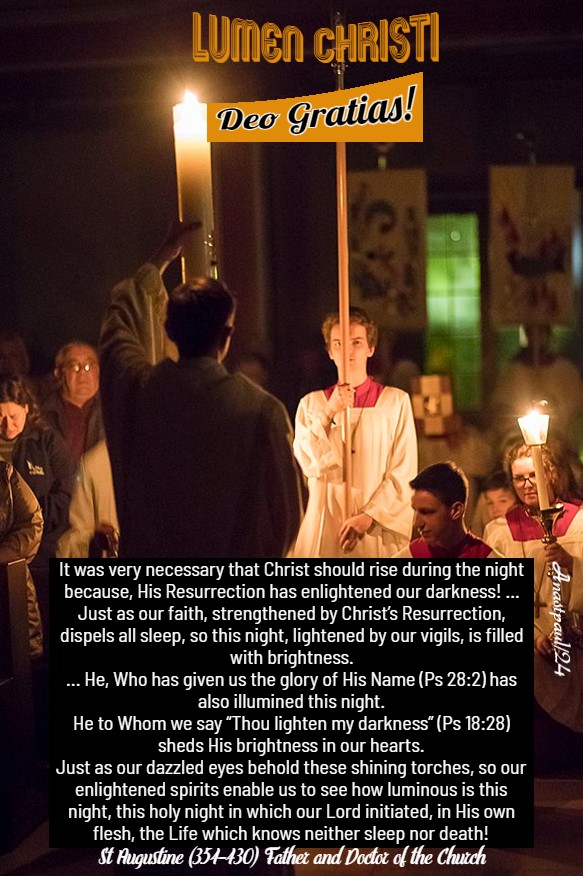











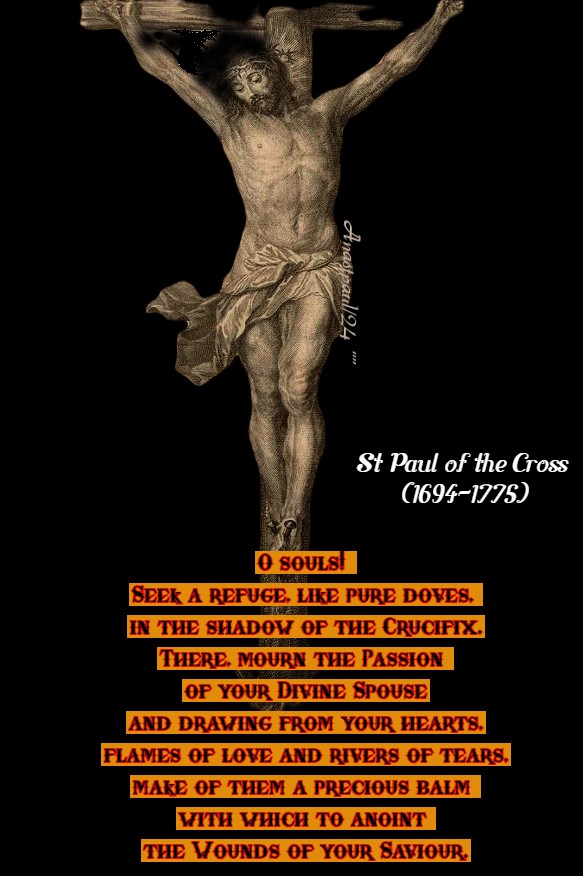



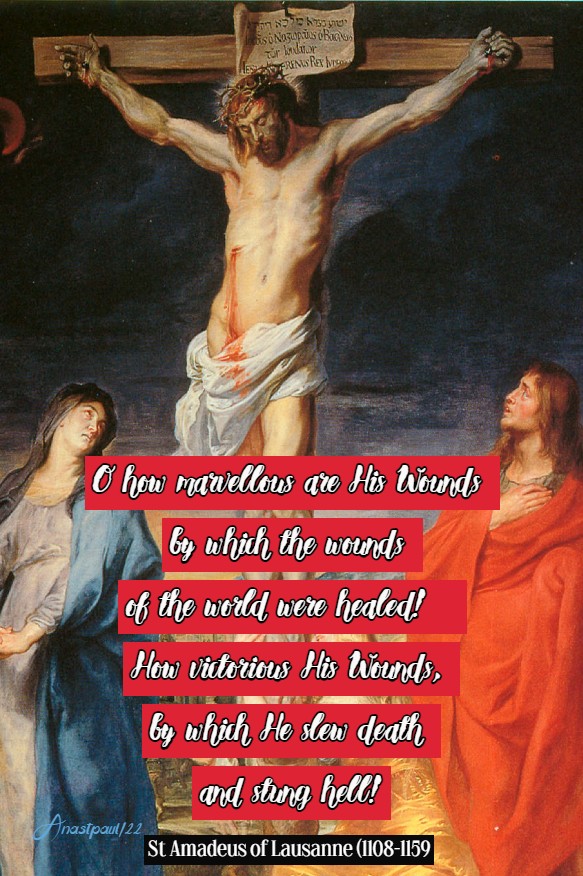
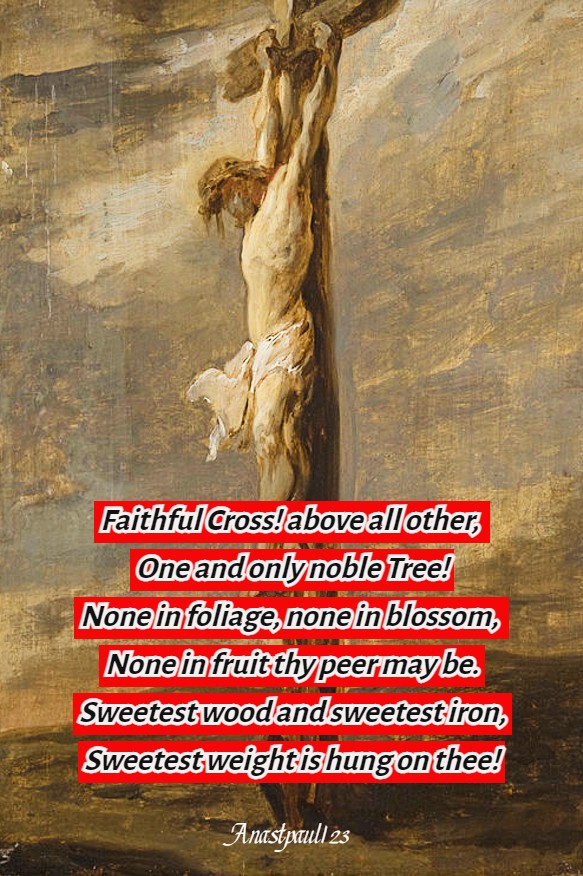
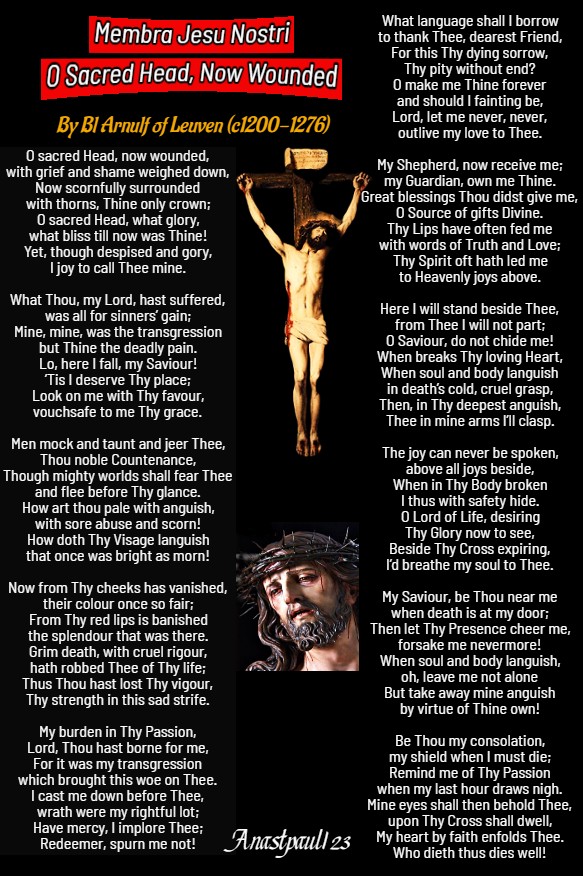

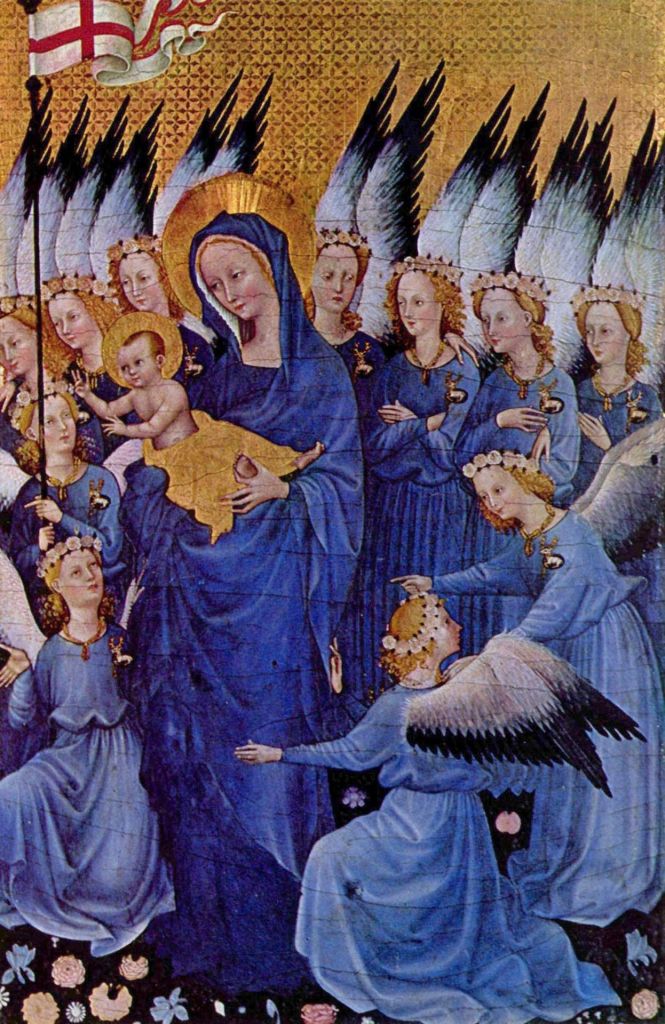

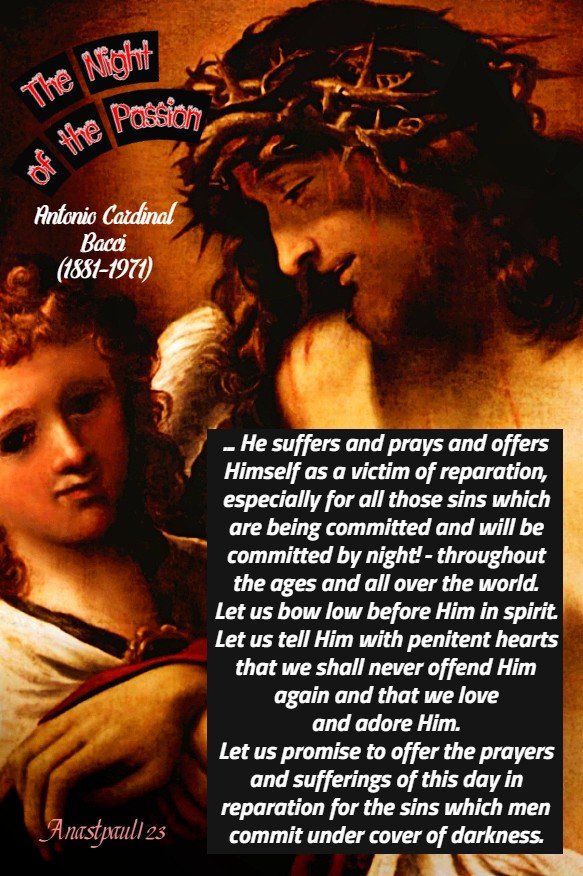



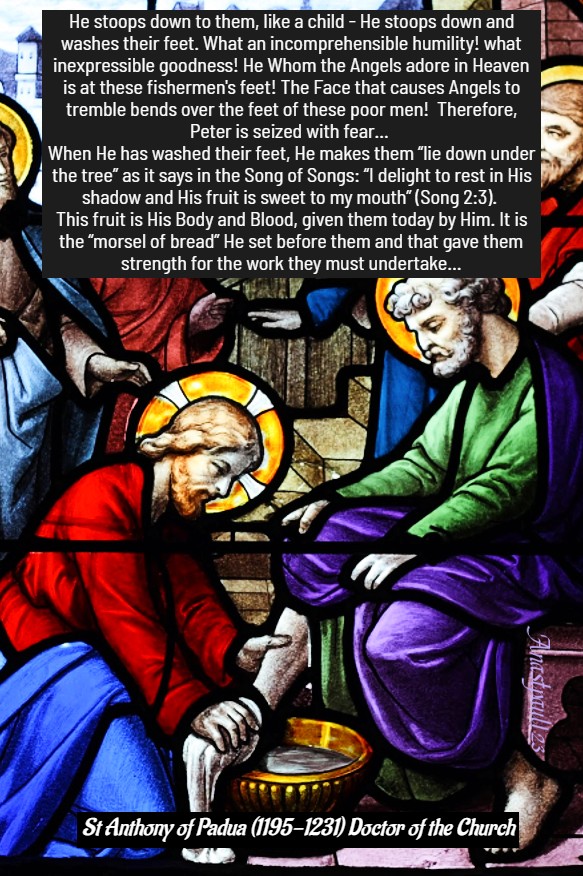



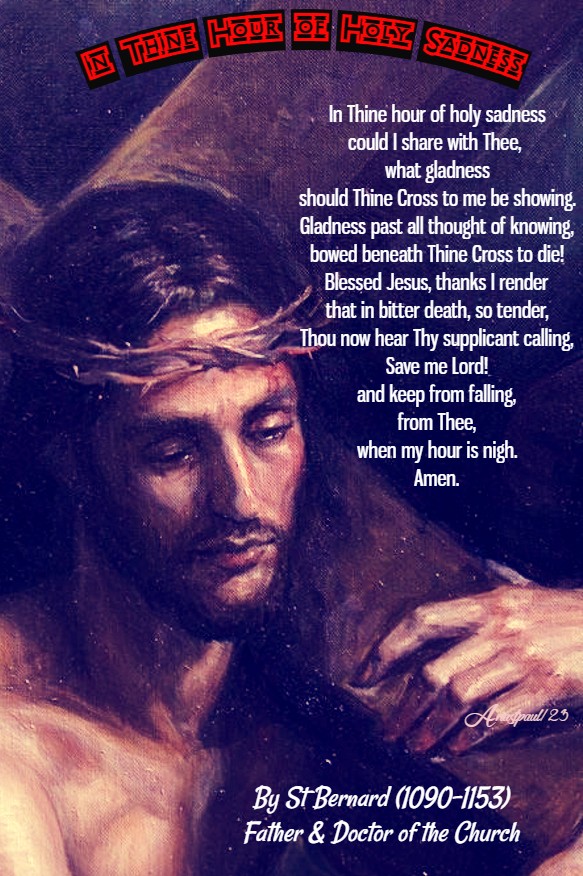

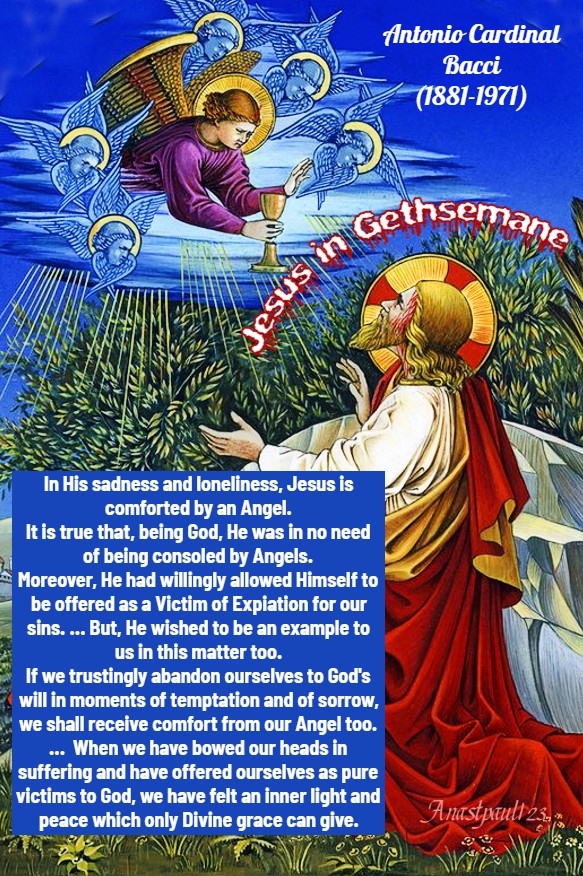


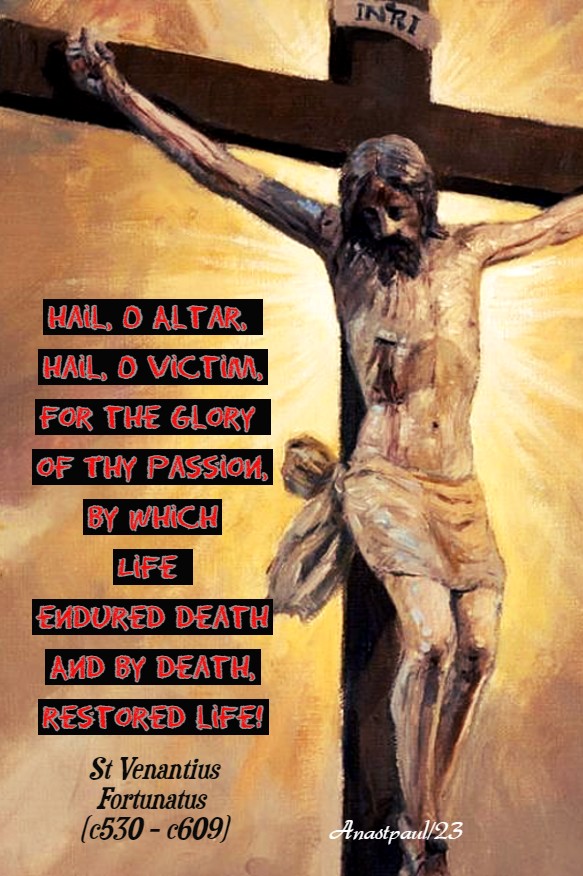
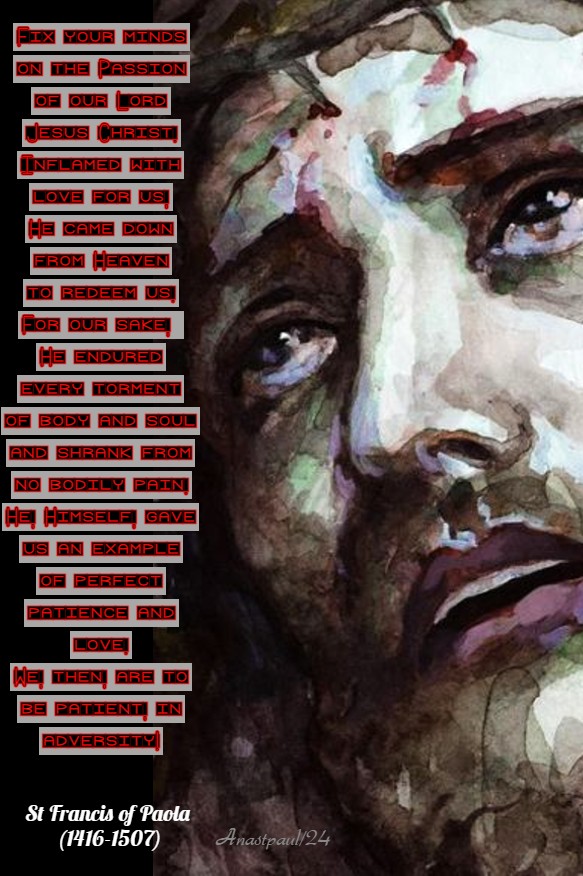






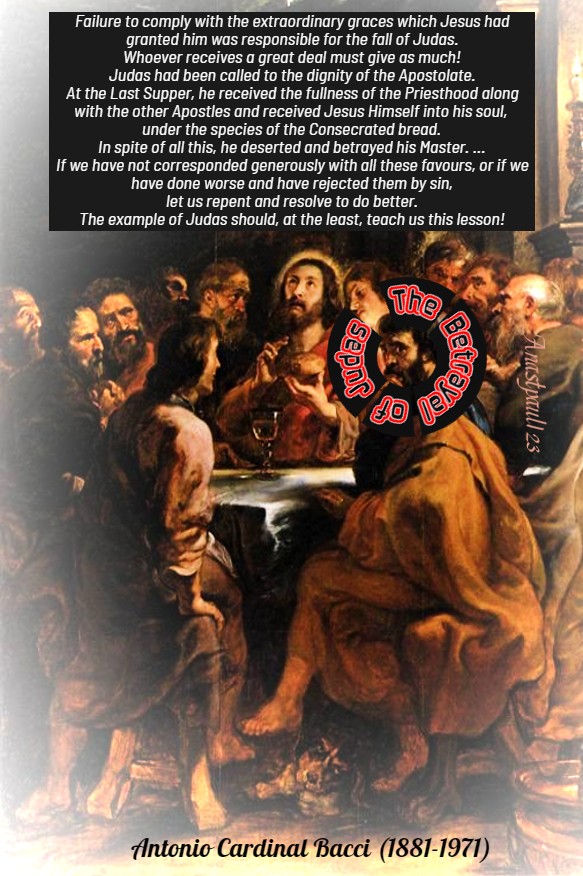


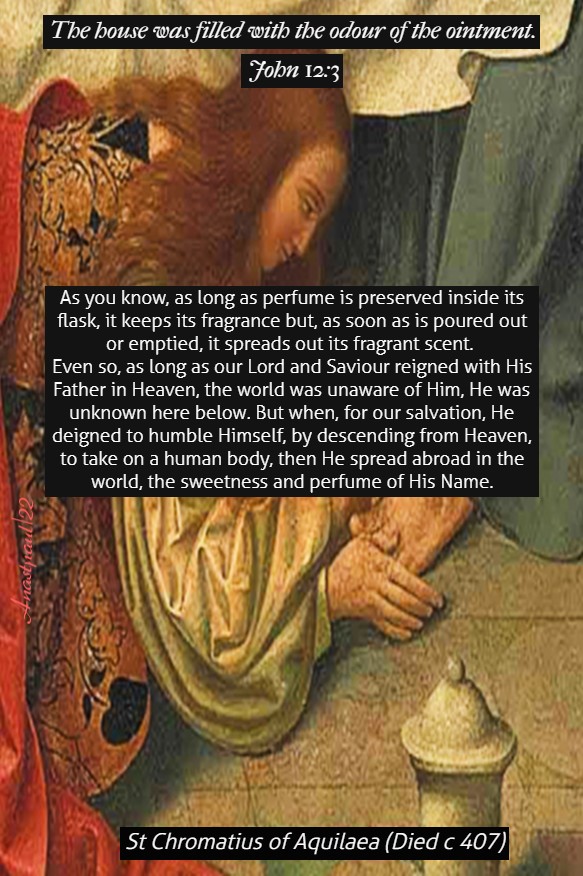

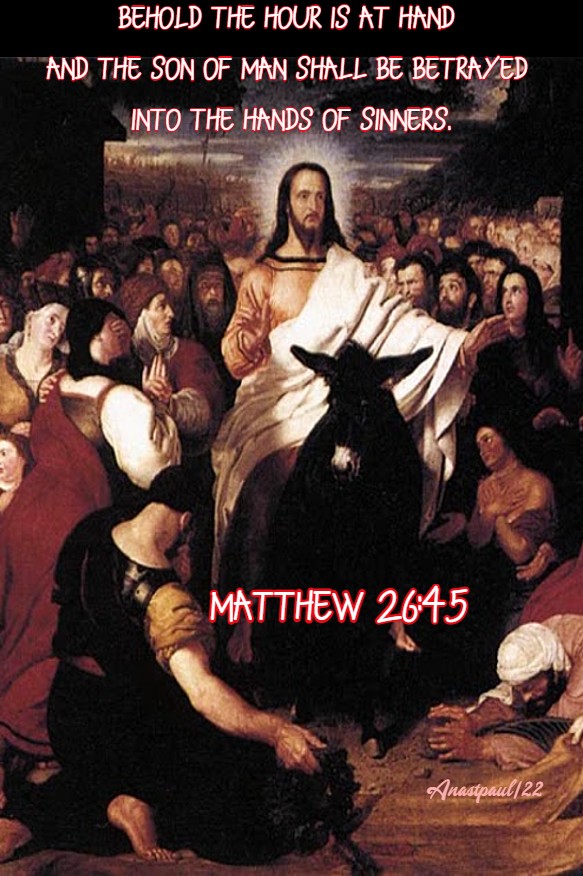






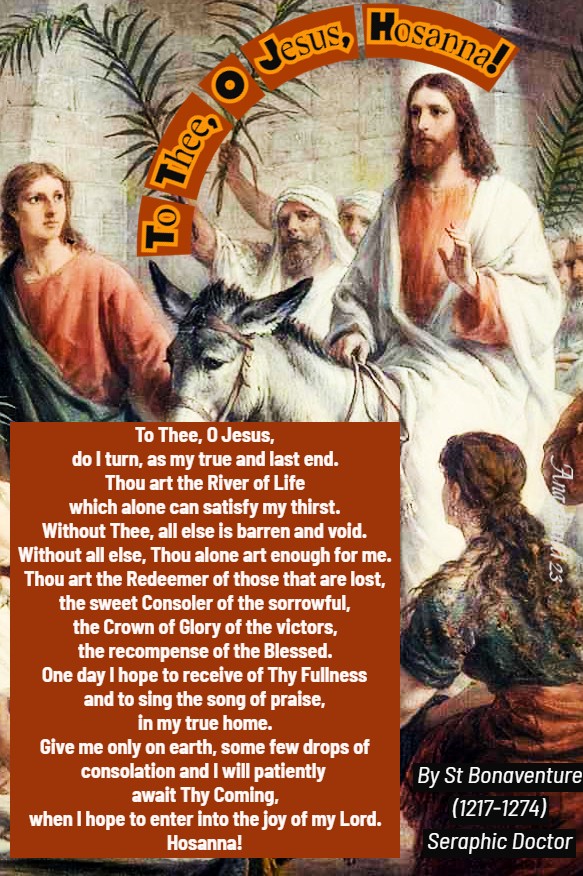
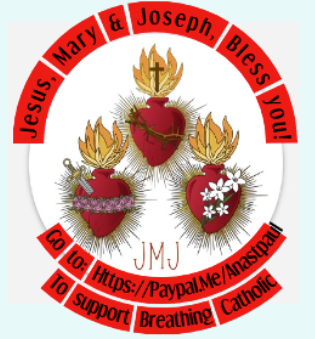
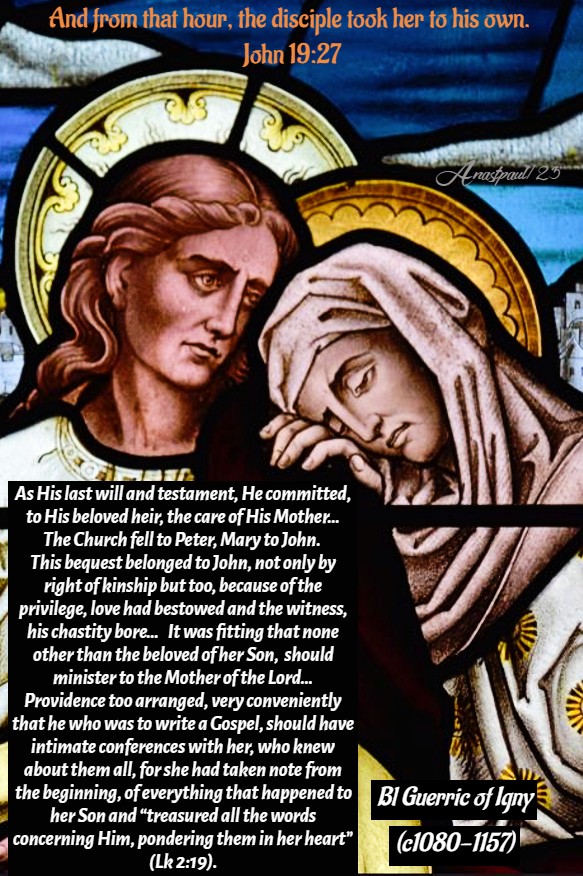
You must be logged in to post a comment.